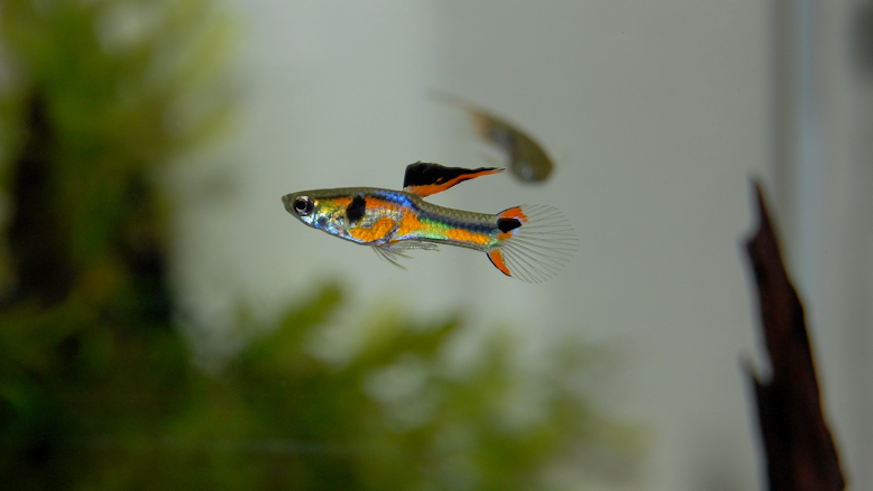Genetic mutations help fight off parasites and disease
23 January 2018

New research on guppy fish by Cardiff University has demonstrated the disease-fighting advantages of mutations in immune genes.
A team of researchers have discovered that new versions of genes involved in detecting and fighting off parasites can help protect against infection.
The collaborative study by Adam Mickiewicz University, Cardiff University, the University of East Anglia and the University of the West Indies, used guppy fish to study mutations in genes involved in immunity, called Major Histocompatibility Complex genes.
Professor Jo Cable, School of Biosciences at Cardiff University, said: “The Major Histocompatibility Complex gene is involved in creating proteins which help to identify infection and disease.
“To investigate the role that these genes play in disease, we examined guppy fish that were infected with parasitic worms.
“The pathogen in the experiment was an ectoparasitic worm, Gyrodactylus sp., which is notorious for harming its host, causing infection and disease.
“Pathogens and their hosts are in a constant evolutionary arms race with each other.
“The hosts find new ways to fight off pathogens, and the pathogens find new ways to avoid the host’s defences.”
The three-year Tobago experiment found the parasites were less successful at infecting the guppy fish that carried genetic variations the Major Histocompatibility Complex genes, and were less likely to cause disease or infection.
“This is the first time that an experimental study has demonstrated the advantage of having novel mutation in the Major Histocompatibility Complex genes in relation to infectious disease in the wild.”
